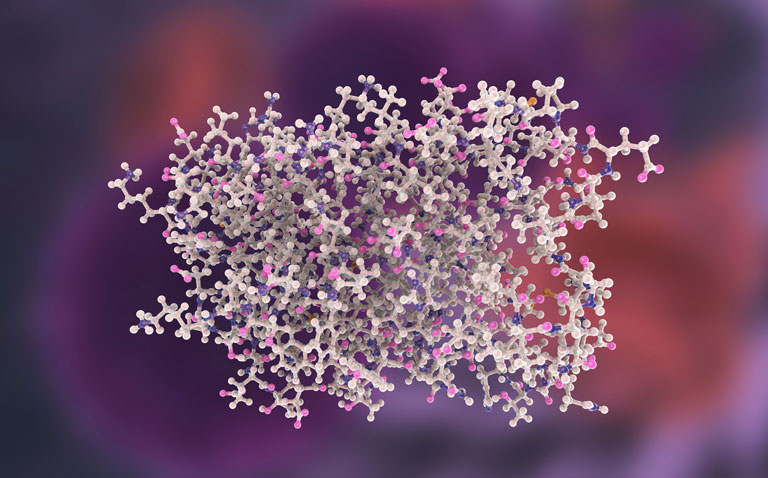Type 1 interferon (interferon-beta) is one of the first cytokines induced by a host’s innate immune system in response to infection by a virus in the lungs.
It is known that COVID-19 is able to suppress the release of interferon-beta in vitro and recent work has shown how there is a significant reduction in interferon activity in patients who develop a more severe infection. SNG001 is a recombinant interferon-beta in development for the treatment of virus-induced lower respiratory tract infections and has been formulated for inhalation via a nebuliser in an effort to achieve sufficient concentrations in the lungs. The drug has been shown to increase lung antiviral defences in patients with asthma and COPD and in this Phase II trial, a team from Southampton General Hospital, UK, decided to explore whether the drug had the potential to reduce the severity of respiratory symptoms in patients with COVID-19.
The researchers randomised patients, admitted to hospital because of COVID-19, to either interferon-beta or placebo which was given once daily for up to 14 days with a 28-day follow-up. The primary outcome for the study was a change in the clinical condition of patients as assessed by the WHO ordinal scale for clinical improvement (OSCI), which ranged from 0 (no evidence of infection) to 8 (death). A secondary outcome was the breathlessness cough and sputum scale (BCSS) as well as measures of the safety and tolerability of the drug.
Findings
A total of 101 patients with a mean age of 57.1 years (59% male) were randomised to SNG001 or placebo. Patients in the SGN001 group had more severe disease (OSCI >4) although those in the placebo group had more comorbidities. Patients receiving SNG001 had a two-fold higher odds of achieving a greater improvement on the OSCI scale (odds ratio, OR = 2.32, 95%CI 1.07-5.04, P = 0.033) on day 15 or 16 which increased to a three-fold on day 28 (OR = 3.15, 95% CI 1.39-7.14, p = 0.006). Only three patients died in the study, all from the placebo group. Furthermore, SNG001 reduced the odds of developing severe disease by 79%. The most frequent treatment-related side-effects were headache, 15% vs 10% (SNG001 vs placebo).
The authors concluded that their initial findings warrant a Phase III trial of the drug and suggest that SNG001 may also be of value against other seasonal respiratory viruses.
Reference
Monk PD et al. Safety and efficacy of inhaled nebulised interferon beta-1a (SNGOO1) for treatment of SARS-CoV-2 infection: a randomised, double-blind, placebo-controlled, phase 2 trial. Lancet Respir Med 2020 https://doi.org/10.1016/ S2213-2600(20)30511-7










